An extract from Bob Burton's Inside Spin: The Dark Underbelly of the PR Industry.
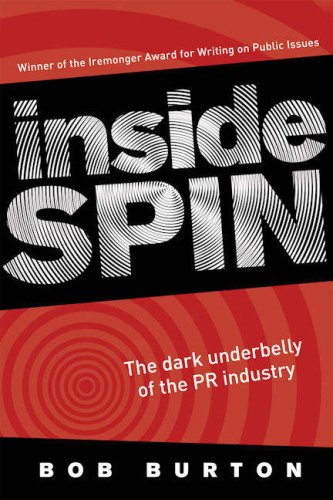 Brian Page, a 42-year-old railway worker, had been busy before Easter 1992 buying furniture for a house he had just moved into at Mt Pritchard, a south-western Sydney suburb. On their way home, his daughter Melissa wanted to stop at McDonald's in Fairfield for lunch. Shortly after returning home, Brian Page began vomiting and had diarrhoea. As Page's symptoms were initially indistinguishable from a bout of the flu, his doctor gave him a medical certificate and sent him home. Page took to bed for the next three days but on the fourth day went back to work, even though he wasn't feeling well. His boss noticed that Page was unable to write properly and seemed disoriented and confused by his work. He was so concerned about Page that he called a taxi and sent him home, but by then Page recognised something was seriously wrong and went straight to Liverpool Hospital. What was unknown to Page and his doctor was that he had been exposed to Legionella bacteria. If detected early, Legionnaires disease can be treated with antibiotics. Untreated, it can be a killer. Two days after being admitted to the intensive care unit of Liverpool Hospital, Page died. On what would have been his 43rd birthday, more than 100 family and friends attended his funeral.14
Brian Page, a 42-year-old railway worker, had been busy before Easter 1992 buying furniture for a house he had just moved into at Mt Pritchard, a south-western Sydney suburb. On their way home, his daughter Melissa wanted to stop at McDonald's in Fairfield for lunch. Shortly after returning home, Brian Page began vomiting and had diarrhoea. As Page's symptoms were initially indistinguishable from a bout of the flu, his doctor gave him a medical certificate and sent him home. Page took to bed for the next three days but on the fourth day went back to work, even though he wasn't feeling well. His boss noticed that Page was unable to write properly and seemed disoriented and confused by his work. He was so concerned about Page that he called a taxi and sent him home, but by then Page recognised something was seriously wrong and went straight to Liverpool Hospital. What was unknown to Page and his doctor was that he had been exposed to Legionella bacteria. If detected early, Legionnaires disease can be treated with antibiotics. Untreated, it can be a killer. Two days after being admitted to the intensive care unit of Liverpool Hospital, Page died. On what would have been his 43rd birthday, more than 100 family and friends attended his funeral.14
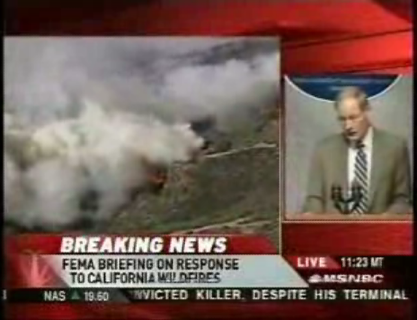 The California wildfire press conference staged last month by Federal Emergency Management Agency (FEMA) staffers, who asked questions of their boss as though they were reporters, has claimed a second
The California wildfire press conference staged last month by Federal Emergency Management Agency (FEMA) staffers, who asked questions of their boss as though they were reporters, has claimed a second 
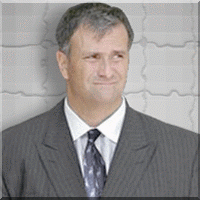
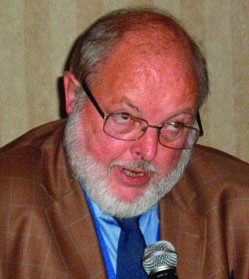 "I love Red Cross, but I don't trust them completely when they're the ones shooting the video," explained journalism professor and Society of Professional Journalists (SPJ) ethics committee member Jerry Dunklee.
"I love Red Cross, but I don't trust them completely when they're the ones shooting the video," explained journalism professor and Society of Professional Journalists (SPJ) ethics committee member Jerry Dunklee. Brian Page, a 42-year-old railway worker, had been busy before Easter 1992 buying furniture for a house he had just moved into at Mt Pritchard, a south-western Sydney suburb. On their way home, his daughter Melissa wanted to stop at McDonald's in Fairfield for lunch. Shortly after returning home, Brian Page began vomiting and had diarrhoea. As Page's symptoms were initially indistinguishable from a bout of the flu, his doctor gave him a medical certificate and sent him home. Page took to bed for the next three days but on the fourth day went back to work, even though he wasn't feeling well. His boss noticed that Page was unable to write properly and seemed disoriented and confused by his work. He was so concerned about Page that he called a taxi and sent him home, but by then Page recognised something was seriously wrong and went straight to Liverpool Hospital. What was unknown to Page and his doctor was that he had been exposed to Legionella bacteria. If detected early, Legionnaires disease can be treated with antibiotics. Untreated, it can be a killer. Two days after being admitted to the intensive care unit of Liverpool Hospital, Page died. On what would have been his 43rd birthday, more than 100 family and friends attended his funeral.14
Brian Page, a 42-year-old railway worker, had been busy before Easter 1992 buying furniture for a house he had just moved into at Mt Pritchard, a south-western Sydney suburb. On their way home, his daughter Melissa wanted to stop at McDonald's in Fairfield for lunch. Shortly after returning home, Brian Page began vomiting and had diarrhoea. As Page's symptoms were initially indistinguishable from a bout of the flu, his doctor gave him a medical certificate and sent him home. Page took to bed for the next three days but on the fourth day went back to work, even though he wasn't feeling well. His boss noticed that Page was unable to write properly and seemed disoriented and confused by his work. He was so concerned about Page that he called a taxi and sent him home, but by then Page recognised something was seriously wrong and went straight to Liverpool Hospital. What was unknown to Page and his doctor was that he had been exposed to Legionella bacteria. If detected early, Legionnaires disease can be treated with antibiotics. Untreated, it can be a killer. Two days after being admitted to the intensive care unit of Liverpool Hospital, Page died. On what would have been his 43rd birthday, more than 100 family and friends attended his funeral.14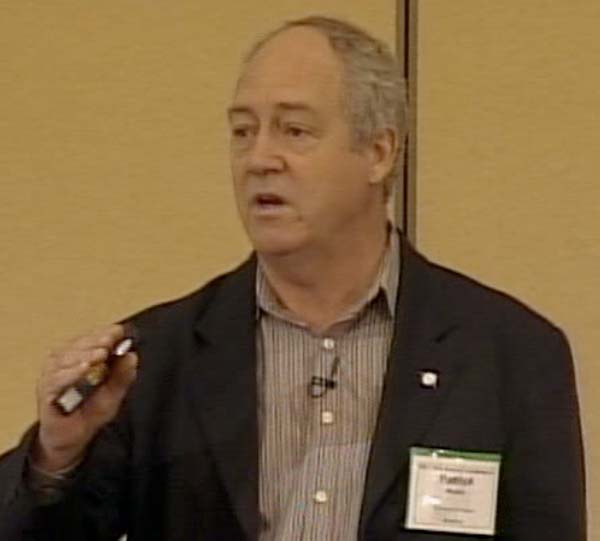 "Much of the environmental movement, including Greenpeace, has lost its way when it comes to nuclear power, caught up in politically correct ideology and stooping to sensationalism to garner support," declared a recent
"Much of the environmental movement, including Greenpeace, has lost its way when it comes to nuclear power, caught up in politically correct ideology and stooping to sensationalism to garner support," declared a recent 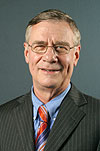 "
"